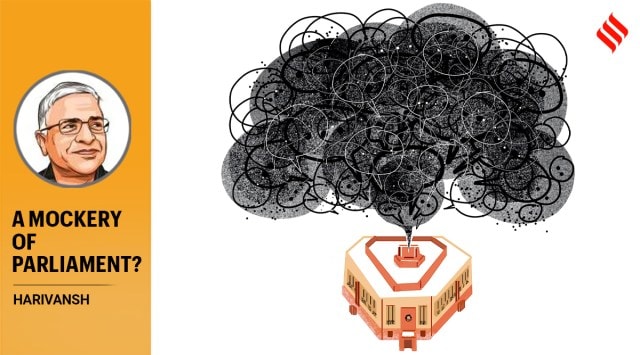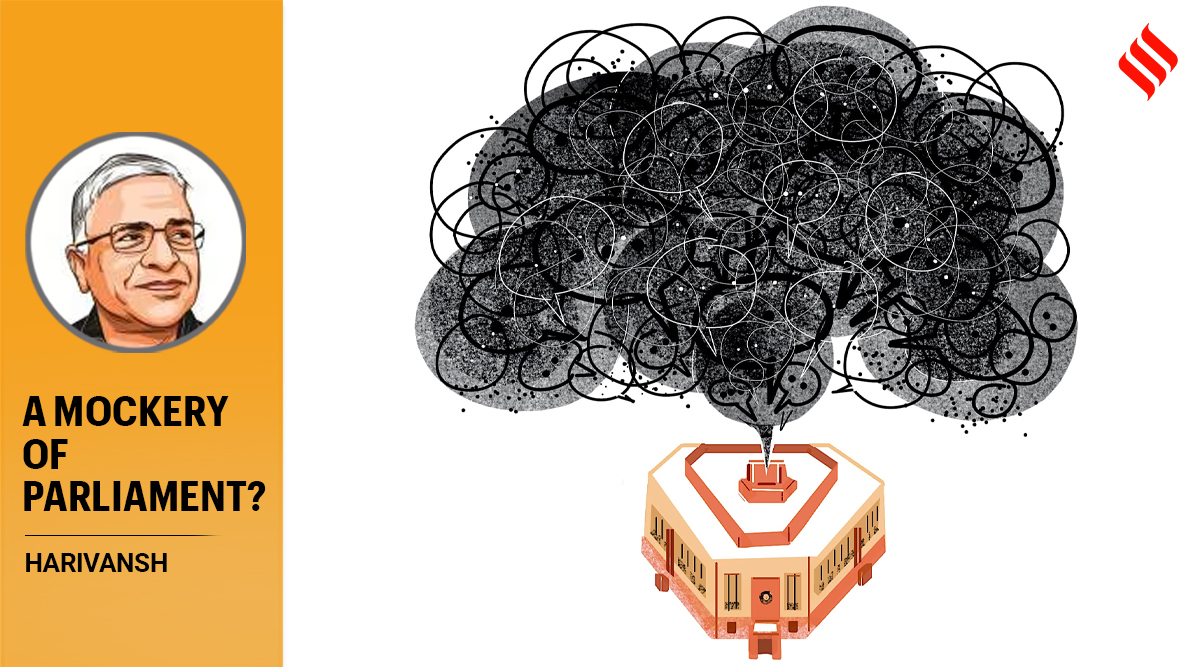
The first session of the 18th Lok Sabha has just concluded where an unprecedented level of acrimony was witnessed. Since this session was held immediately after the general elections, the mood during the electioneering, it appears, was carried into the House, as was reflected in the speeches made from both sides. Few speakers referred to the issues, included or not included in the President’s Address. Fuel was added to the fire by the tone and tenor of the speech made by the Leader of Opposition in the Lok Sabha.
As is natural, it set the tone of further discussion in both the Houses, particularly that of the replies to be given by the Prime Minister. The Opposition members continuously shouted slogans in the Lok Sabha obstructing the Prime Minister’s speech and they walked out of the Rajya Sabha when he spoke there the next day. Booing the Prime Minister incessantly during his speech was quite worrying. So was the walkout by the Opposition parties in the Rajya Sabha without listening to the Prime Minister. Both these acts by the Opposition are undeniably antithetical to basic canons of parliamentary democracy.
In Parliament, the right to speak should be balanced with respect for opposing viewpoints and parliamentary decorum. Disagreements can and should be expressed through debate and discussion rather than through disruptive tactics that prevent others from exercising their right to speak. In a deliberative context, the right to be heard and the duty to listen are inseparable; they are two sides of the democratic coin.
Expression of dissent, no doubt, is in-built in the working of any Parliament, provided it is within the ambit of the rules and practices of the House. Any gross violations are punishable. An attempt to shout down a Member of Parliament while speaking, leave alone the Prime Minister who is also the Leader of the House, is unacceptable and needs to be discouraged. More so, when the Prime Minister gave full respect to the Leader of Opposition and sat and listened to his entire speech in Lok Sabha with calm and poise. In the same spirit, the Opposition in the Rajya Sabha also should have sat and listened to what the PM had to say. Failing to do that amounts to the Opposition shirking its responsibility.
The office of the Leader of Opposition has been associated with the highest traditions in India. Occupants of this office are expected to have the utmost respect for the parliamentary rules of procedure, conventions, etc. They must not be seen to be instigating others to go to the well to disrupt the House. They should avoid making defamatory or unsubstantiated allegations in the House that might be contradicted inside or outside the House. The Leader of the Opposition represents not only his own party but the entire Opposition in the House. So much so, in some countries he is seen as the shadow PM. Therefore, he has to be much more careful and responsible in what he says and how he behaves in the House.
While the instances of disruption and walkouts may not be new to our Parliament, their degree and scale this time was certainly unprecedented. The entire Opposition walking out when the Prime Minister was replying to the debate in which they all had participated is also very rare. The Opposition members continuously shouting in front of the Prime Minister to make his speech inaudible is unknown to any Parliament among the major democracies of the world.
We need to remember that the mandate of the people after the election is very clear. They have given a convincing majority to the NDA, a pre-poll alliance, to govern the country. The alliance has reposed its confidence in the vision and leadership of Prime Minister Narendra Modi. At the same time, the electorate has also increased the strength of the Opposition parties in the Lok Sabha this time. Having done so, people expect both sides to exercise their constitutional responsibilities in the most constructive manner. Governance is the joint responsibility of both sides. If any side fails to live up to their expectations, it would amount to defiance of their mandate.
The kind of hostility witnessed between the two sides during the recent Session in both the Houses does not augur well for the future of Parliament of India. The nation needs to seriously reflect upon this unfortunate development that has dangerous implications. A show of such aggression in the House will certainly vitiate the spirit of consensus and cooperation without which it will be difficult, nay impossible, to run the Houses.
Any legislative gridlock will be inimical to our vision to make India Viksit Bharat by 2047. Our Parliament has to be dynamic and robust for timely approval of the laws and finances needed for taking the country forward in today’s fast changing world.
The writer is Deputy Chairperson of Rajya Sabha and a Janata Dal (United) MP



